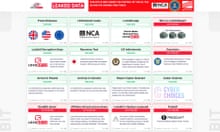The shocking disparity in the way the banks refund fraud victims has been laid bare in figures that show TSB refunded 94% of customer fraud claims in full last year, while for Monzo the figure was just 6%.
According to the data, published on Tuesday by the Payments System Regulator (PSR), TSB was the standout bank in terms of refunding victims of authorised push payment (APP) fraud.
APP fraud happens when a fraudster tricks someone into authorising a cash transfer to an account outside their control – often by pretending to be a bank employee, a police officer, or by offering items for sale that require a bank transfer.
Banks are mostly obliged to return customers’ losses except where they believe the customer was grossly negligent. This explains, in part, the disparity in refund levels. Tougher rules governing this area are coming into force next year.
For the first time, the PSR has named and shamed the worst banks in this regard, in terms of the proportion of cases that led to funds being reimbursed fully and partly and also the percentage of all money lost that was returned to customers.
TSB also did the best under this latter measure, refunding 91% of customers’ total losses during 2022, way ahead of Nationwide which was in second place and returned 78% of its customers’ APP fraud losses. Lloyds bank, the UK’s biggest current account provider, refunded less than half (49%) of its customers’ monetary losses due to APP fraud.
The digital-only Monzo was the worst-performing big name bank in this regard, refunding 22% of its customers’ losses. It refused to help customers at all in 76% of cases, according to the PSR.
Metro Bank (42%), Starling (37%) and Clydesdale/Virgin Money (38%) all performed poorly when it came to refunding their customers’ losses during 2022. By comparison, HSBC and Barclays were near the top of table, refunding more than 70% of customer losses, but still significantly behind TSB, which has made much of its fraud guarantee.
APP fraud accounted for 40% of fraud losses in 2022, and consumers are expected to lose more than £1bn to fraudsters this year alone.
Chris Hemsley, the managing director of the PSR, said: “This is the first time we can see at an individual level how well banks and payment firms are dealing with APP fraud. This provides better information for customers on how firms handle APP fraud and encourages these firms to take more action to tackle it.”
Rocio Concha, Which?’s director of policy and advocacy, said: “These figures confirm what we have long suspected – that some firms would prefer to point the finger at blameless victims than take responsibility for customers losing money at the hands of sophisticated fraudsters.
after newsletter promotion
“It is good that these figures are now public. Regularly publishing APP fraud reimbursement rates should help to ensure the worst performers raise their game when it comes to both the prevention of APP scams and the treatment of victims afterwards.”
Ashley Hart, the director of fraud at Monzo, said there were special reasons to explain its results.
“APP fraud is a huge industry-wide issue, with criminals targeting UK consumers and tricking people into sending them hundreds of millions of pounds a year,” he said. “The way to fight back against this crime is to stop it happening in the first place, which is why we’ve invested heavily over 2023 in cutting-edge technology, AI and machine-learning tooling to protect our customers.
“Our customer base is disproportionately affected by purchase scams, 70% of which originate on social media – these companies need to take decisive action like we are.”









